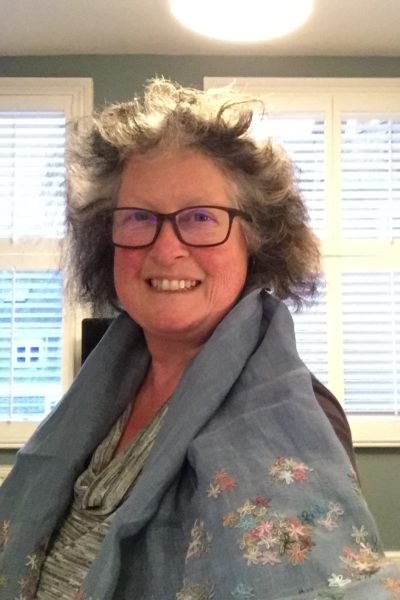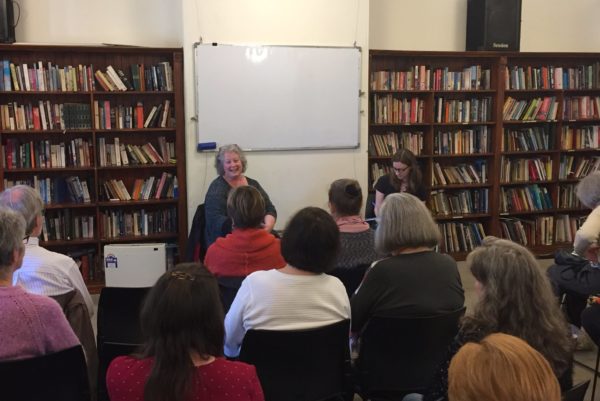
This September, our First Friday Club featured Annette Barlow, a publisher at Australia’s largest and most successful independent publishing house, Allen & Unwin. Annette sat down with our Membership & Development Officer, Sherry Landow, to discuss the daily life of a publisher, her outlook for the industry, and what writers should do to get a manuscript onto her desk.
Annette has worked in the publishing industry for over 30 years, in bookshops, in sales, in editorial, and for over 20 years as a publisher. Her list comprises fiction titles including the twice Miles Franklin-winner Alex Miller as well as nonfiction titles that include Jessica Rowe, Mary-Rose MacColl, and Eddie Ayres. She is the publisher responsible for the annual The Australian/Vogel’s Literary Award and she teaches with the Faber Writing Academy at Allen & Unwin.
Our Membership Intern, Alexander Wells, sat in on the conversation.
*
The publisher’s role
As a publisher, Annette is responsible for finding manuscripts for Allen & Unwin to publish and bringing them in to the house. To sum up her role, she said that she is the writer’s biggest champion, pitching and presenting their work to the rest of the company.
She attends a lot of meetings – meetings with editors, with sales and marketing directors and national account managers, with designers, and with other publishers. The most important one happens every Tuesday, when Allen & Unwin’s publishers present their new book proposals. These are compiled with information on who the author is and why they are suitable, comparison titles, and excerpts from the manuscripts.
For Annette, her role is not about indulging personal tastes. ‘As a publisher, it’s not my job to publish just for me,’ she said. ‘It’s to publish for as many people as possible.’ Commercial fiction remains easy to sell; crime, romance, and historical fiction continue to be popular. For literary fiction, however, things are not so rosy.
‘To introduce new literary fiction to the market is very difficult,’ Annette explained. ‘It’s not enough to put it out there and say yes, this is a great book.’
Getting your manuscript onto her desk
Allen & Unwin, like most major publishing houses, now has an electronic submission system. This makes things easier for both the writer and the publisher. Annette painted a picture of life before the electronic process, when a manuscript ‘…would just sit there and glower at whoever walked past for six months.’
Now, they use the Friday Pitch system, which allows writers of all genres to have their work considered by one of the in-house submissions editors. There are clear guidelines about what to submit, and writers are notified within two weeks if their manuscript will be taken up. ‘It’s much better for writers to know, “OK, I’m moving on”,’ Annette said.

How to avoid rejection
According to Annette, the most common pitfall lies in not commanding the reader’s interest early on. ‘You have to make us want to read on,’ she insisted. ‘Making it interesting is the most important thing.’
Having a great opening is crucial. As an exercise, Annette encourages writers to read the first page of their six favourite books and examine how each opening grabs their attention.
It’s also important not to make spelling and grammar errors, and to refrain from sending in a synopsis or excerpt that is longer than requested. While it might seem minor, adhering to the guidelines is part of promoting yourself as a professional.
On the value of prizes
Annette is the publisher responsible for The Australian/Vogel’s Literary Award, which rewards the best unpublished manuscript by a writer under 35 with $20,000 in prize money plus publication by Allen & Unwin. The generous bequest was made by Niels Stevns, a Danish-Australian breadmaker whose two passions were for literature and music. ‘Luckily for us, he chose literature,’ Annette laughed.
From the 120 entries, Annette chooses a longlist of around 12, each of which is read by the judges before they meet to elect a winner. Previous recipients have found great success, from Andrew McGahan to Tim Winton and Kate Grenville.
‘The Vogel’s is so beautiful because it opens the door,’ Annette said, pointing out that it can often let people feel for the first time like a writer.
Annette places value on literary awards because they can serve as an outside acknowledgement that someone is writing well and that their work is valued. But perhaps most importantly, cash prizes buy authors the time to write.
The state of the industry
Annette is doggedly optimistic about the publishing industry. Going by the predictions five years ago, she laughed, ‘We were meant to be dead by now.’
Print books are still here, and after the massive growth in electronic publishing, eBook figures have now plateaued in Australia.
There continue to be significant challenges, such as the declining space for book reviews in mainstream media. But her outlook remains positive. ‘We’ve had quite a rise in children’s books publishing, which is a nice thing for the future,’ Annette said.
‘Reading is endemic – we all love stories, and that survives.’
*
You can follow Annette on Twitter @annettepb.
